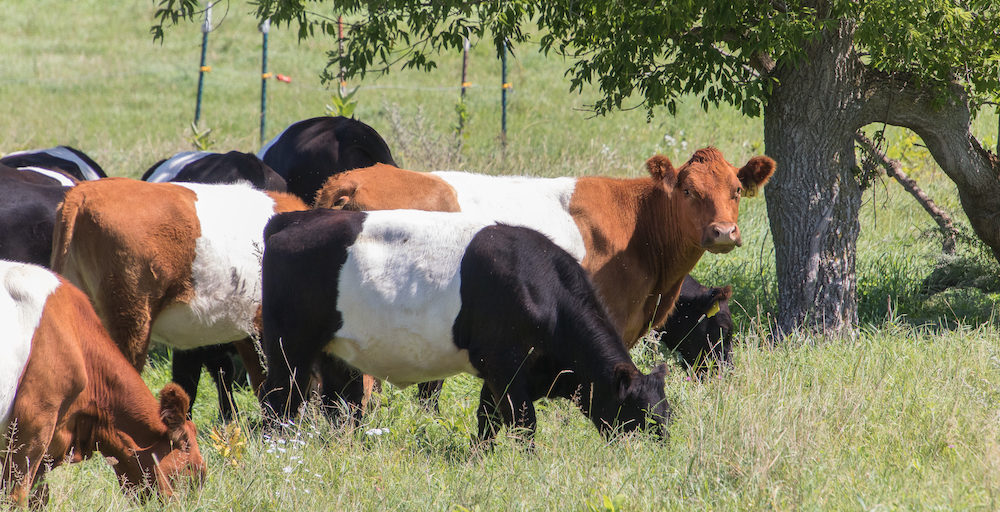What: Live, Deep Roots Radio conversation with bovine genetics guru Gearld Fry
When: Saturday, Jan. 3, 2014, 9:00-9:30AM Central
Where: Broadcast and streamed live from the studios of WPCA Radio, 93.1FM and online at
www.wpcaradio.org

Gearld Fry, bovine genetics expert
I met Gearld Fry five years ago. It was in a crowded hotel conference room in St. Paul, Minnesota, and Fry was one of four instructors taking us through a two-day grazing school. We were transfixed.
It was December and Dave and I had just bought our 72-acre farm in western Wisconsin. Fry’s presentation introduced us to principles we’re using to improve our herd and to produce healthful 100% grass-fed beef.
Fry talked about working seasonally, feeding only grass and why, how to identify a cow that will give rich milk for her calves, and the huge influence the bull has on the quality of future generations. He also stressed the importance of “line breeding,” using your own bulls to continually improve the quality of your animals.
Line breeding?
Join me and
Gearld Fry tomorrow morning for a live chat about his approaches. Nationally known, Fry’s counsel is based on over 50 years experience with cattle – beef and dairy.
Like this:
Like Loading...
 Join me for this conversation with Cody Holmes.
Join me for this conversation with Cody Holmes.














